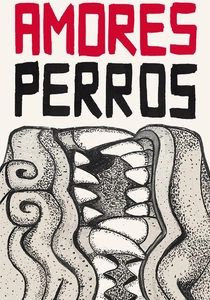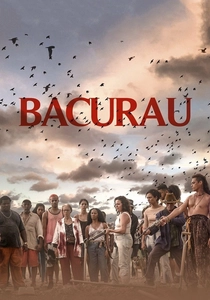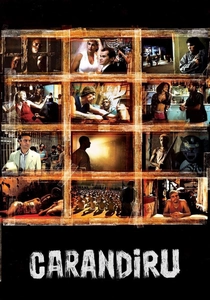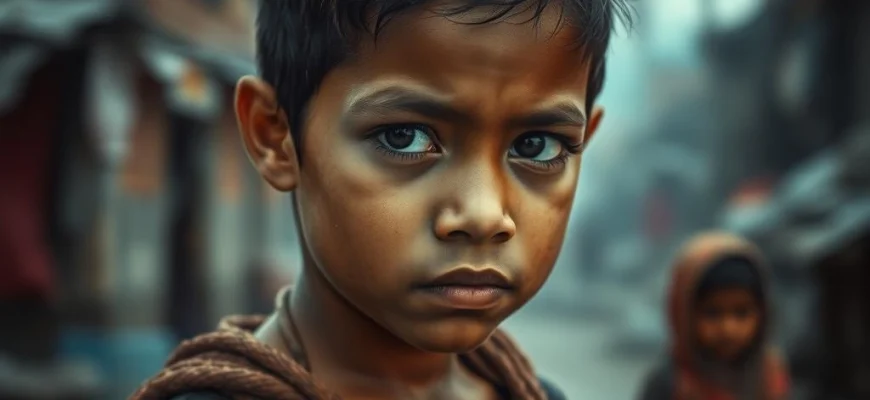If you were moved by the raw and unflinching portrayal of youth and survival in 'Pixote' (1980), you'll want to explore more films that capture similar themes of hardship, resilience, and social realism. This article highlights 10 movies and shows that echo the gritty, emotional intensity of 'Pixote,' offering viewers a deeper dive into stories of marginalized lives and stark realities.

Black Orpheus (1959)
Description: A reimagining of the Greek myth of Orpheus and Eurydice set during Rio's Carnival, blending vibrant visuals with a tragic love story. The film's use of music and dance captures the energy and rhythm of Brazilian culture.
Fact: The soundtrack, featuring samba and bossa nova, became internationally famous. It won the Palme d'Or at the Cannes Film Festival and the Academy Award for Best Foreign Language Film.
 Watch Now
Watch Now 
Central Station (1998)
Description: A poignant story about an unlikely bond between a jaded older woman and a young boy searching for his father. The film explores themes of displacement, redemption, and human connection against the backdrop of Brazil's vast landscapes.
Fact: The lead actress, Fernanda Montenegro, was nominated for an Academy Award for her role. Much of the dialogue was improvised during filming.
 Watch Now
Watch Now 
Y Tu Mamá También (2001)
Description: A coming-of-age road trip film that explores friendship, sexuality, and social class in Mexico. The film's candid approach and naturalistic style capture the turbulence of adolescence and the complexities of human relationships.
Fact: The movie was initially rated NC-17 in the U.S. for its explicit content. It won the Venice Film Festival's Marcello Mastroianni Award for its young leads.
 Watch Now
Watch Now 
Amores Perros (2000)
Description: A gripping, multi-narrative film that intertwines the lives of characters connected by a car accident in Mexico City. Its raw, visceral storytelling and exploration of love, loss, and violence create a powerful emotional impact.
Fact: The title translates to 'Love's a Bitch' in English. It was Alejandro González Iñárritu's feature film debut and launched his international career.
 Watch Now
Watch Now 
City of God (2002)
Description: A raw and unflinching portrayal of life in the favelas, focusing on the cycle of violence and poverty through the eyes of young characters. The film's gritty realism and documentary-like style create a powerful, immersive experience.
Fact: Many of the actors were actual residents of the favelas, adding to the film's authenticity. It was shot on location in Rio de Janeiro's Cidade de Deus neighborhood.
 Watch Now
Watch Now 
The Motorcycle Diaries (2004)
Description: A biographical road movie that follows a young Che Guevara on a journey across South America, awakening his political consciousness. The film's lush cinematography and introspective tone highlight the beauty and inequality of the continent.
Fact: The movie was shot in the actual locations visited by Che Guevara during his trip. It won the Academy Award for Best Original Song.
 Watch Now
Watch Now 
Elite Squad (2007)
Description: This film delves into the brutal realities of police corruption and the drug trade in Rio de Janeiro, offering a stark, often violent look at systemic issues. Its handheld camera work and intense pacing heighten the sense of urgency and chaos.
Fact: The movie sparked controversy in Brazil for its depiction of police brutality. It won the Golden Bear at the Berlin International Film Festival.
 Watch Now
Watch Now 
Bacurau (2019)
Description: A genre-blending film that combines elements of western, horror, and political satire to tell the story of a small village under siege. Its bold narrative and striking visuals challenge colonialist and exploitative forces.
Fact: The title refers to a nocturnal bird native to Brazil, symbolizing the village's resilience. It won the Jury Prize at the Cannes Film Festival.
 Watch Now
Watch Now 
The Second Mother (2015)
Description: A subtle yet incisive critique of class divisions in Brazil, focusing on a live-in housekeeper whose life is upended when her estranged daughter comes to visit. The film's quiet tension and emotional depth reveal the complexities of social hierarchy.
Fact: The movie was Brazil's official submission for the Best Foreign Language Film at the 88th Academy Awards. It won a Special Jury Prize at the Sundance Film Festival.
 Watch Now
Watch Now 
Carandiru (2003)
Description: Based on true events, this film exposes the harsh conditions and violence within one of Latin America's largest prisons. Its ensemble cast and episodic structure highlight the diverse yet interconnected lives of the inmates.
Fact: The prison depicted in the film was demolished in 2002, shortly before the movie's release. The story is based on a book by Dr. Drauzio Varella, who worked at the prison.
 Watch Now
Watch Now 








